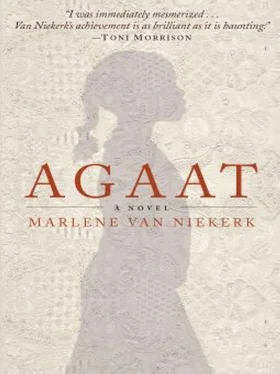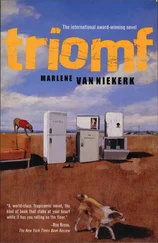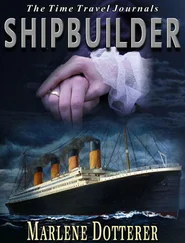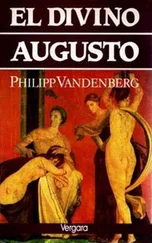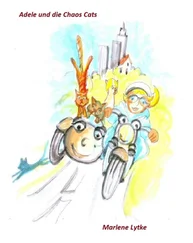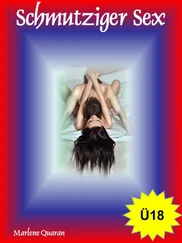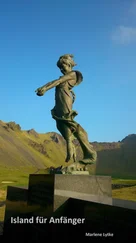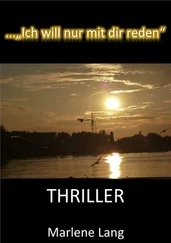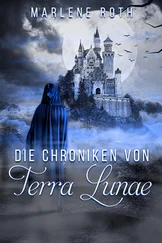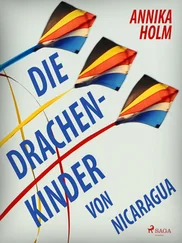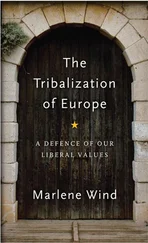So then she pushed open the door.
G-g-g-g-creaked the hinge.
It was pitch-dark inside. At first she could make out nothing, but when her eyes got accustomed, she saw a pitch-black hole. It was the fireplace, full of ash and soot and burnt-out logs. And in the corner of the hearth sat a pitch-black something.
And she went closer and she saw the thing had legs.
And the thing had arms.
And the thing’s head was hidden deep in her clothes.
And the clothes had holes.
And through the holes she counted ribs.
And the elbows were chapped.
And the knees were grazed.
And the hair full of lice.
And the ears were stopped with wax.
And around the neck was a necklace of dirt.
And the feet were full of mud.
And the woman looked even closer and saw that the thing had one arm thinner than the other and one crooked shoulder and one hand with fingers clawed together, it looked like the head of a snake.
And the woman knelt before the thing in the fireplace and she asked:
What is your name?
And she pricked up her ears to hear but there was no reply.
What is your name? she asked again, are you perhaps the child that’s been cast off?
And she listened even more closely and still she heard nothing.
Look at me, she said, tell me, what do they call you?
And she put her hand on the crooked shoulder and the creature shrank into itself and then she heard something.
G-g-g-g-g-g-g-g-g-g-g-g.
And the thing looked even blacker than before, and she felt as cold under the woman’s hand as a burnt-out coal.
And then the woman got very angry.
Little rapscallion, she said, and she grabbed the thing by the neck and plucked it out of the hearth-hole and she dragged it out, out by the door, into the bright sunshine.
Stand up straight, she said, so that I can see what kind of an animal you are!
And then she saw that it was a little girl. And the child took one look at her, and she jerked loose, and took off from there, the chickens scattered and the dogs made way and the woman ran after.
Little tin-arse, she screamed, you I’m catching today!
Over the ditches the little girl jumped, barefoot over the stones, through the thorns, this way round a bush, other way round a tree, over an ant-hill, faster than the white-foot hare with the woman right behind her. And they ran and they ran, far over the veld, far over the fallow land, and down the dust-road all the way to the top of the dam wall, and the woman grabbed her round the body, and she fell on top of the child flat on the ground.
And the child kicked, and the child bit, and she wriggled, and she coughed and she blew and she g-g-g-g-g-g-ed and she squeaked, but the woman held on with all her might and she said:
You I’m washing white as snow today!
And she dragged her to the dam and she dunked her in and she started washing her with a white handkerchief, but the handkerchief turned black and the water turned black and the child stayed black.
You I’m taking home today, said the woman, you I’m taming, you I’m turning white!
And she packed her in a little box, as small as a watch, as black as a cricket and she took her along over the mountain to the house with the two white gables by the river.
What is that, asked the husband?
It’s a child, said the woman.
It’s a stone, said the husband, it’s a piece of coal.
And the woman said, just you wait, you’ll see, her I’ll cut down to size, her I’ll wash till she’s clean.
And the woman she scours and the woman she spits and the woman she blows and the woman she buffs and the woman she rubs and the woman she scrubs, and the child doesn’t turn white, but she does come out clean and she’s turned out brown.
What’s your name? Is your tongue gone, then, little ash-potato, asks the woman, open your mouth.
But the child wouldn’t talk and the child wouldn’t eat and child she stayed as shut as a stone.
And the woman she pinches and the woman she slaps and the woman she threatens and the woman she pleads and the woman she swears and the woman she screams and jumps up and down and later she’s worn out with struggling and she locks up the child in the back room of the house and she sits down in a little heap with her head on her knees and she weeps.
Dumbstupid woman! the farmer scolded. Look, now you’re even unhappier than you were before. It’s a bad child you’ve brought into our house, it’s a dung beetle.
And the woman said: Just you wait, you’ll see, I know she’s good, she’ll bring us lots of happiness yet.
And the woman made a slot in the door and she whistled through it at the child, and all day she sang and she played the piano and she rang the bells and she struck on sticks and she made her dresses and shadow-animals and verses and the sweetest foods. But the child stayed small and hard and stiff and she said not a word and she slid away under her bed and she rolled herself into a ball in the corner of her room.
And then one day the woman had a bright idea and she said:
I found you in the cold pitch-black fireplace. Perhaps what you need is a real live fire!
And when the woman said ‘fire’ then the child’s eyes shone like two morning stars, and she leapt up there, can you believe it, and she became as lively as an ant and she searched for dry grasses and a ball of paper and she gathered the twigs and the sticks and she carried three pine cones and five old mealie cobs and piled everything in a heap and the woman dragged up three big logs and she took an ember from the stove and she placed it under the heap and she said to the child:
Now blow, my child, for all you’re worth, and do get some life!
And the child she bulged her cheeks and she blew and she blew with all her might, and before long a little spiral of smoke arose and a little flame leapt up and the heap caught fire. And it crackled and sputtered and the sparks they flew and the fire it flared up and the flames they beckoned with hot red hands and they said:
Come, little child, come! And dance and sing because we are the place you come from! You come from the hearth, you come from the wind, from the glow of the wood, from the soot-black chimney that sucks up sparks and that speckles the lily with ash, you come from the smoke that turns the sun red as copper and the moon as yellow as gold.
And from that day the little girl was good and sweet and a child like every other child and she was baptised with the name Good.
And the woman taught her to bake and cook and wash and iron and sweep and polish and knit and sew with needle and thread. And she taught her to read and to write. And she tied a ribbon in her hair and showed her a mirror and she said:
See, now you are a human being.
And she took her to the forest and the sea and the fields. And she taught Good the names of the plants and the fishes and the animals and the bugs and the flowers, the months and the days and the time for sowing and the time for reaping and the lambing-time and the shearing-time and the psalms and the hymns of thankfulness. And Good wore a red dress and learnt hard and was in everything she did as good as her name. And Good wore a green dress and she grew up and got strong and had good manners and said her prayers and ate at table with the farmer and his wife and slept in her room at the end of the passage. And every evening the woman told her the story of how she had rescued her from the pitch-black hearth and made of her a child in the house and a human being in the mirror. And the woman’s breath was sweet and her hands were soft on Good’s head. And sometimes when the woman’s husband beat her, she crawled into Good’s bed at night for comfort and slept by her till morning.
Читать дальше
